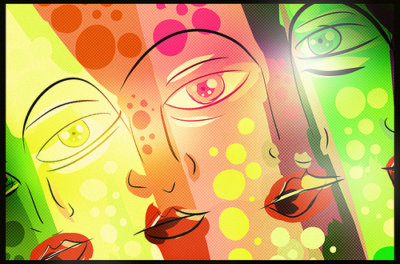Alcohol Dependency – 3 Ways to Manage Yours for Life
 Carolyn Hughes never intended to have an alcohol dependency.
Carolyn Hughes never intended to have an alcohol dependency.
Like many, she took her first drink as a teenager, but over a period of 20 years her occasional use turned to regular abuse and eventually she was completely alcohol dependent.
Today she is no longer controlled by her alcoholism, but after 16 years of sobriety has learned to control her condition and enjoy her life. How did she make the transition? This is her story.
“From drinker to addict”
“My compulsion to drink was motivated by the false confidence it gave me. It made me feel attractive and capable. Most of all, it took away my fears. I was actually able to function well for many years despite my alcohol abuse. But like all addictions, they eventually get the better of you, and soon enough I crossed the line into chaos and despair and alcohol dependency.
The transition was largely because I also used alcohol as a means of self-medicating. It numbed me from the psychological impact of being abandoned by my mother as a young child, and abused by my father as I grew up. And I did not want the numbness to stop and the pain to start again. So as my tolerance to drink increased, so did my consumption. But the pain was of course still there, no matter how much I drank.
Following an alcohol-induced suicide attempt I was left with no option other than to make the choice to give in to the addiction that would inevitably kill me, or to find the courage to heal. I chose the latter.
Today, I am no longer controlled by my alcoholism. Instead I have learned how to manage the condition and enjoy my life as the person I was meant to be by following the following 3 steps.
The 3 Steps to Managing Your Addiction
1. Admit to the problem

By: Surian Soosay
It sounds very obvious, but until you admit you have a problem you can do nothing to change it. This means confronting the denial that has allowed you to maintain your alcohol dependency despite the consequences.
I know from experience the extent to which you can delude yourself that you are in control and that you can stop if you want to. I tried cutting back, and I did the forced periods of abstinence – only to return to the bottle harder than before. Denying my problem only served to extend the time I remained in addiction, and it’s just what it will do for you, too.
Blaming others is just another way to avoid owning your problem. Whether it’s trauma from your childhood or ordeals suffered as an adult, there will always be someone or something to point the finger at. But if you can only see everything as someone else’s fault, then what power do you have to step in and change things for yourself? You have to take responsibility for your actions. Only then can you move forward.
It’s important to fully and deeply admit to your problem. Minimising the extent of your alcohol dependency will also hold you back as you aren’t being honest with yourself. Check to see if you are protesting that things aren’t as bad as everyone tells you they are. Those around you have first-hand knowledge of your addiction, because your problem isn’t yours alone, it’s theirs too. So if you think they are exaggerating, there’s a good chance you are deluding yourself.
Admitting you have a problem with alcohol dependency goes hand in hand with asking for help, and whilst this too may feel like a weakness, it’s actually a sign of strength. The huge stigma attached to mental health problems sadly reinforces so many of us staying in the dark about addiction and being reluctant to seek treatment. Don’t buy into the negative hype about seeking treatment. It is not just a powerful step to take, it is essential if you plan to heal and change your life.
2. Seek the right treatment for you
When it comes to finding the best treatment for your addiction, one size does not fit all. Personally, the extent of my alcohol dependency required an intensive 6-month residential stay. I found a faith-based traditional 12-step programme worked best for me, but there are plenty of alternatives.
Whatever your addiction it is likely that you will require assistance with both the physical and mental symptoms. It may be wise to consult your medical practitioner for advice in the first instance, but there is also a huge range of counselling and rehabilitation options to then look into.
It’s really important you don’t give up on finding the right treatment for you. Finding the right match for you may involve undergoing some that don’t work first. It’s normal for this to happen, don’t take it personally. The important thing is to keep motivated in wanting recovery. And remember that whilst addiction affects many, only you will be able to determine your individual needs. For example, not everyone will require long-term abstinence.
But do remember that recovery is a long-term process. Don’t expect it to be quick and easy, or think you are fine when you aren’t yet. Continue to seek help and support as required.
3. Learn to keep well
Once you’ve sought treatment, it’s vital that you learn how to continue to look after yourself. It’s not a one off, it’s a lifelong commitment.
Determine to nurture your body by eating healthily, exercising regularly and getting enough sleep. If medication has been prescribed, ensure you take it and return to your medical advisor for regular reviews.
Once you’ve stepped onto the path of recovery, your addiction no longer has to define you and it no longer has to control you. Your past doesn’t have to define your present so practice being kind to yourself for who you are today, not who you were yesterday. Similarly, focus on your right choices, rather than your previous mistakes.
Conclusion
Addiction is an overwhelming condition that left untreated can dominate every aspect of your life. Yet it is possible to take control and start living you life as the person you were meant to be.
So if I had to add a ‘bonus tip’, it would be this – take steps to discover who that person is! Invest in exploring who you really are. There is great freedom to be experienced in learning to live without an emotional and physical crutch. When you are no longer in the grip of addiction you are free to find your passion and your authentic self. And this can be truly exciting and joyful. Experiment! Get out there and try new things. You might discover, like I did, that life can be bigger and better then you ever imagined. ”
 Carolyn Hughes writes freelance for a variety of magazines and publications in the UK and the United States. A large proportion of her work specialises in addiction and mental health issues which stems from her personal story of alcoholism and depression. Her popular blog the Hurt Healer reflects her passion to help others make their own successful journey in emotional recovery and to live their life as the person they were meant to be.
Carolyn Hughes writes freelance for a variety of magazines and publications in the UK and the United States. A large proportion of her work specialises in addiction and mental health issues which stems from her personal story of alcoholism and depression. Her popular blog the Hurt Healer reflects her passion to help others make their own successful journey in emotional recovery and to live their life as the person they were meant to be.
Did you enjoy this piece? Find it useful? Please share it with others it might help too. And subscribe above to know every time we post other useful posts like this one.
Harley Therapy offers highly experienced addiction counsellors in three London locations. You can now book a first appointment online. Not in the UK? We now also offer online therapy worldwide.





